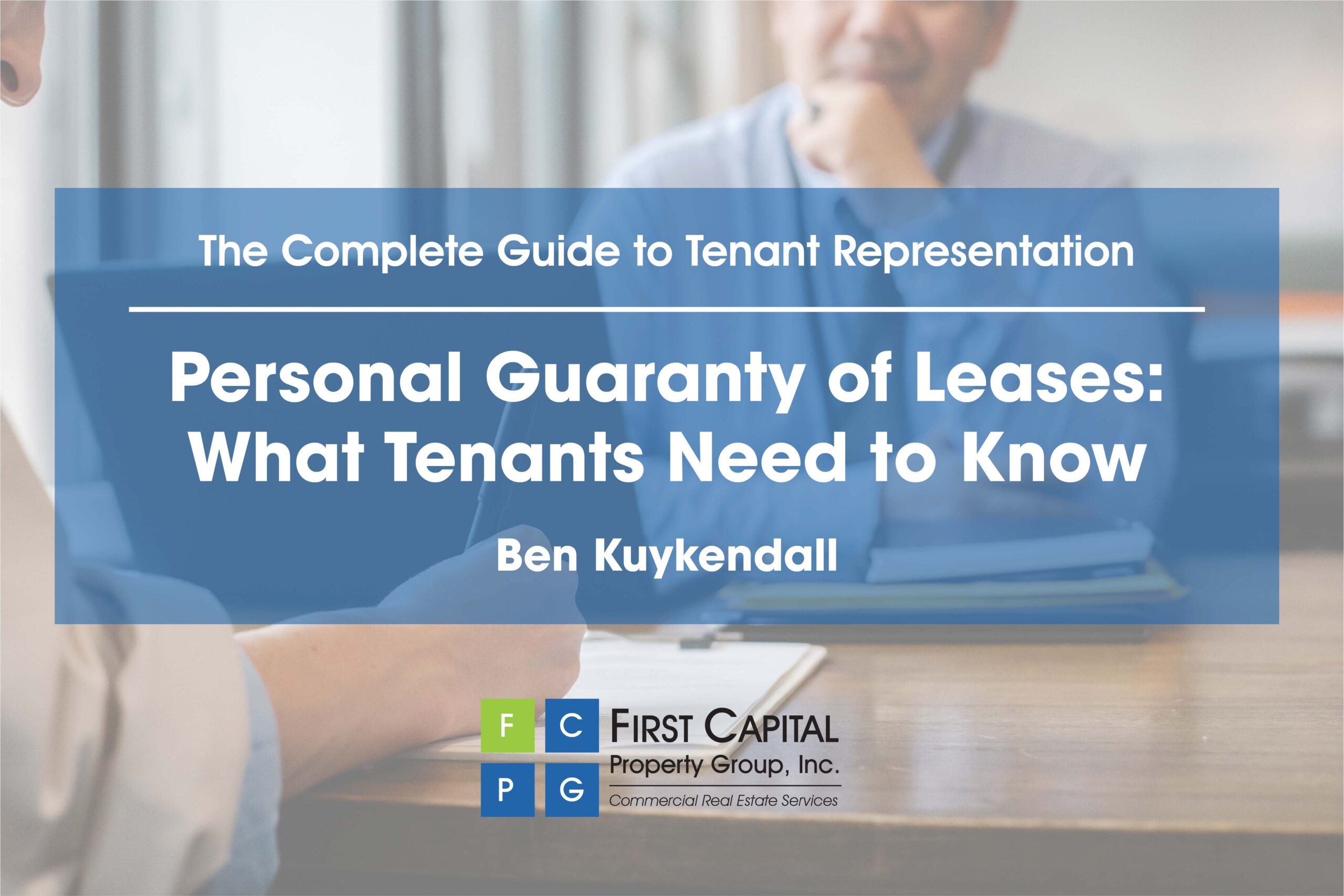
The Complete Guide to Tenant Representation
Personal Guaranty of Leases – What Tenants Need to Know
Ben Kuykendall
November 2022
A personal guaranty of a lease is an agreement between a commercial tenant and landlord in which the tenant agrees to personally be liable for the debt if the business defaults on rent payments. In other words, if your business can’t or doesn’t pay rent, you as the owner are on the hook to make up the difference.
This might seem like a lot of responsibility, but there are actually a couple of good reasons why landlords often require a personal guaranty:
- It protects their investment. If your business fails and you’re unable to pay rent, the landlord still needs to be able to cover their mortgage and other expenses. A personal guaranty ensures that they’ll be able to do that.
- It ensures that you as the tenant are committed to making your business a success. After all, you wouldn’t agree to be personally liable for something unless you were pretty confident in your ability to succeed, right?
Of course, signing a personal guaranty does come with some risks. In a worst-case scenario, if the landlord needed to take legal action against your business for failure to make rent payments, and you’re unable to cover the unpaid amount yourself, you could potentially lose some of your personal assets – including your home1. That’s why it’s so important to think carefully before signing a personal guaranty and to make sure that you have a solid business plan in place.
When is a Personal Guaranty of Lease Required?
A personal guaranty of lease may be required by the landlord when:
- The tenant has no previous credit history,
- The tenant has poor credit,
- The landlord wants extra protection against default,
- The tenant is a start-up or early-stage business with little or no financial history, or
- The proposed lease is for a long term.
Types of Personal Guarantees
There are two types of personal guarantees: absolute and qualified.
An absolute guarantee2 means that you’re liable for the entire amount of debt, no matter how much it is.
A qualified guarantee only puts you on the hook for a certain amount (usually equal to several months’ worth of rent). This is can also referred be to as a rolling guaranty, in which the partial guaranty amount “rolls” over each year of the lease until the lease term expires.
Which type of personal guarantee is right for your business? It depends on a few factors, including how much money you have in reserve and how risky you think your industry is.
If you’re in a high-risk industry or don’t have much money saved up, a qualified guaranty might be a better option since it limits your potential liability.
On the other hand, if you’re confident in your ability to make rent payments and have some cushion in case things go south, an absolute guaranty might be the way to go.
The negatives of signing a personal guaranty should not be taken lightly—after all, defaulting on rent payments could mean losing everything you’ve put into your business. However, if used correctly, personal guaranties can be an excellent way to show landlords that you’re serious about making your business work, especially as it’s often required for startup and early growth stage companies.
Conclusion:
A personal guaranty of lease is an agreement in which the tenant agrees to be held personally liable for rent payments if their business tenant defaults on the lease.
This type of agreement is often required by landlords when leasing to tenants with no credit history or poor credit and can protect landlords from significant financial loss in the event of default.
Although signing a personal guaranty puts your personal assets at risk, there are measures you can take, such as requiring collateral, to minimize your exposure. If you are considering signing a personal guaranty of lease, it is important to seek legal counsel first to ensure that your interests are protected.
If you’re looking to lease commercial space in Central Florida and have questions about personal guarantees or commercial leases in general, First Capital Property Group would be glad to help you in your lease negotiation. Contact our brokerage department at 407.872.0177.
